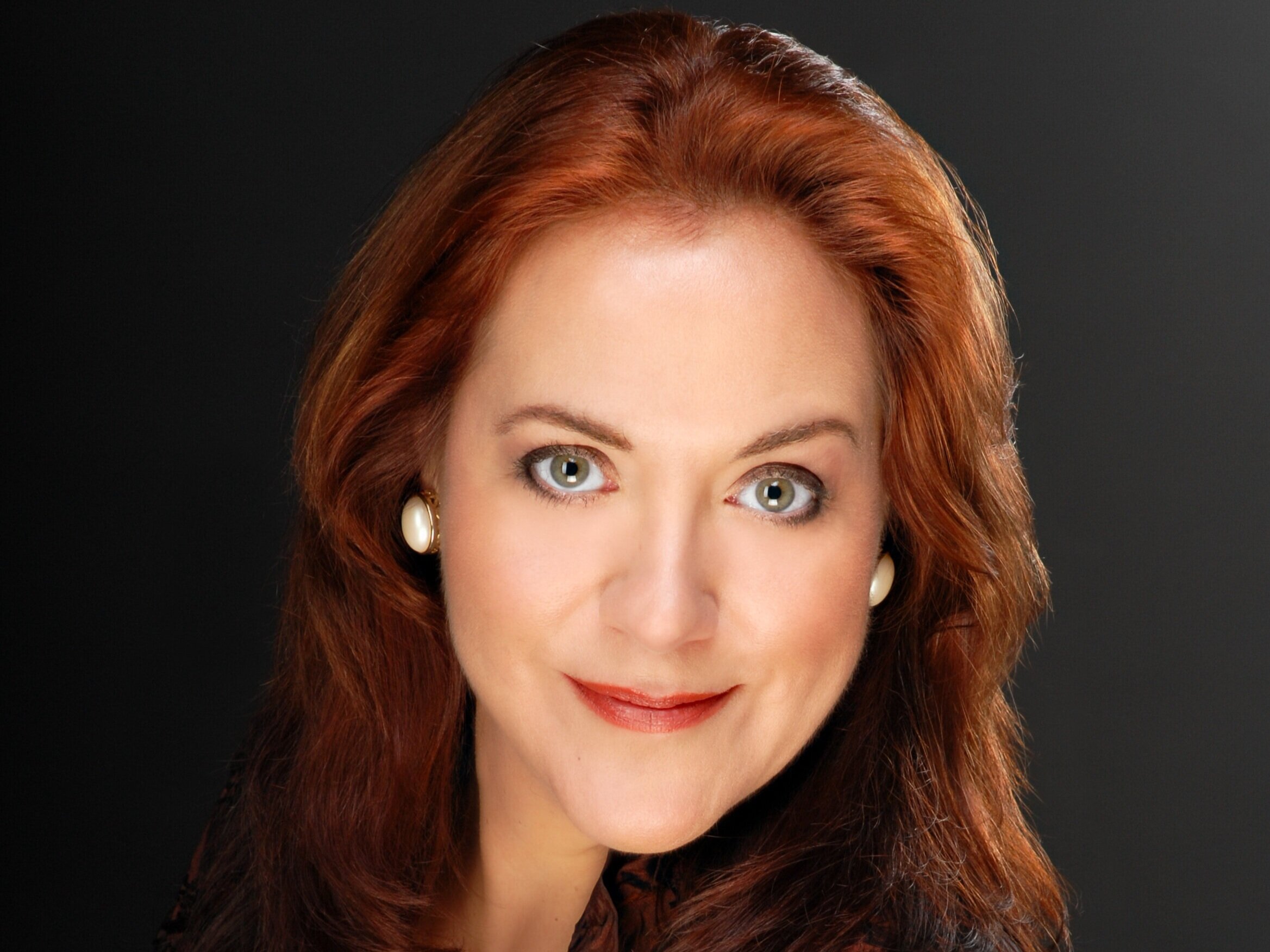
Mary Phillips
Mezzo-soprano
“…for me the star of the show was Mary Phillips, a Met regular, who sang Brangane with rich and ringing tones, casting her warning from high in the Centennial Concert Hall’s second balcony.”
With a voice that has been called “pure gold,” and dramatic gifts that place her in the first rank of singer-actors, American mezzo-soprano Mary Phillips is closely associated with the music of Wagner. She has performed most of the mezzo roles in the Ring cycle, making an acclaimed role debut as Brangäne in Tristan und Isolde for Dallas Opera, as well as returning to the Metropolitan Opera as Schwertleite in Die Walküre, in which she also covered the role of Fricka. She has sung Fricka and Waltraute in Die Walküre and Waltraute in Götterdämmerung at Canadian Opera; Erda in the Scottish Opera’s Ring, and Wellgunde and Rossweise in Seattle Opera’s Ring cycles. Read more in biography below.
Recent News
Watch & Listen
VERDI “Stride la vampa…Condotta ell`era ceppi” from Il Trovatore
WAGNER Excerpts from Tristan & Isolde
VERDI “Prison Scene” from Il Trovatore
MAHLER Symphony No.2 in C minor “Resurrection”
MAHLER Kindertotenlieder
Biography
With a voice that has been called “pure gold,” and dramatic gifts that place her in the first rank of singer-actors, American mezzo-soprano Mary Phillips is closely associated with the music of Wagner. She sings many mezzo roles in the Ring cycle and made her acclaimed role debut as Brangäne in Tristan und Isolde for Dallas Opera, as well as returning to the Metropolitan Opera as Schwertleite in Die Walküre, in which she also covered the role of Fricka. She has sung Fricka and Waltraute in Die Walküre and Waltraute in Götterdämmerung at Canadian Opera; Erda in the Scottish Opera’s Ring, and Wellgunde and Rossweise in Seattle Opera’s Ring cycles.
Ms. Phillips has also been hailed for her Verdi; she made her Met debut in La Forza del Destino, and her San Francisco Opera debut in Rigoletto. Of her performances of Princess Eboli in Don Carlo, a role she has sung for Austin, Canadian, Sarasota and Vancouver Operas, Vancouver Sun said “she deserves an opera best supporting actress Oscar: vocally confident and theatrically practiced, she is a singer/actress of power and stature.” She has also sung Azucena in Il Trovatore at the Seattle Opera and Arizona. Of her Amneris in Aida, one reviewer wrote, “in this difficult role requiring agility, a wide vocal range and emotional strength, Phillips poured her heart and voice into it.” Recent and upcoming seasons have featured Phillips with The Metropolitan Opera (Rusalka/Jezibaba), Edmonton Opera (Salome/Herodias), Winnipeg Symphony Orchestra (Tristan und Isolde/Brangane), and Opera Birmingham (Gertrude/ Ambroise Thomas’ Hamlet). Other recent engagements of note include Jezibaba in Dvorak’s Rusalka with the Metropolitan Opera and roles in Strauss’s Elektra with the Metropolitan Opera and the Boston Symphony Orchestra at both Symphony Hall and Carnegie Hall in New York.
Ms. Phillips is committed to the American music of our time. She has sung Mrs. Alexander in the Met’s production of Philip Glass’s Satyagraha; Sister Helen Prejean in Jake Heggie’s Dead Man Walking at Austin Lyric Opera and his song cycle The Starry Night at Chicago’s Ravinia Festival, at Carnegie’s Zankel Hall and at the Library of Congress. Her facility with contemporary works led to her New York Philharmonic debut in the world premieres of Michael Torke’s Four Seasons and Aaron Jay Kernis’s Garden of Light. She made her Dallas Opera debut as Ceres in Lee Hoiby’s The Tempest.
On the concert stage, she is much in demand for Mahler, having sung Mulier Samaritana in Mahler’s Symphony No. 8 with the New York Philharmonic/Maazel, and Symphony No. 2 with the Los Angeles Philharmonic and the Atlanta Symphony (a performance which was also recorded). She has performed Beethoven's Symphony No. 9 with the Boston Symphony Orchestra/Levine, Philadelphia Orchestra/Dutoit, Utah Symphony and Opera, the National Symphony, the Hong Kong Philharmonic, the Baltimore Symphony, and the Handel & Haydn Society and has recorded it with Philharmonia Baroque Orchestra/McGegan. She has sung Saint-Saens’ Requiem at Carnegie Hall, and Mendelssohn’s Elijah at both Carnegie Hall and with the Nashville Symphony. Ms. Phillips can often be heard in duo recital with soprano Lori Phillips (her twin sister) and pianist Vera Danchenko-Stern, director of the Russian Chamber Arts Ensemble.
Ms. Phillips maintains a strong interest in baroque repertoire. On the opera stage this has included Sesto in Giulio Cesare in Barcelona and Eduige in Rodelinda for Dallas Opera. Concert appearances include Messiah at Carnegie Hall and with the Atlanta Symphony, Baltimore Symphony, New Jersey Symphony, and Gulbenkian Orchestra in Lisbon, as well as with the Seattle Symphony, with whom she has also performed Bach's Mass in B Minor. She has sung the Vivaldi Gloria at the Hollywood Bowl with the Los Angeles Philharmonic and has recorded the Bach Magnificat for Boston Baroque.





